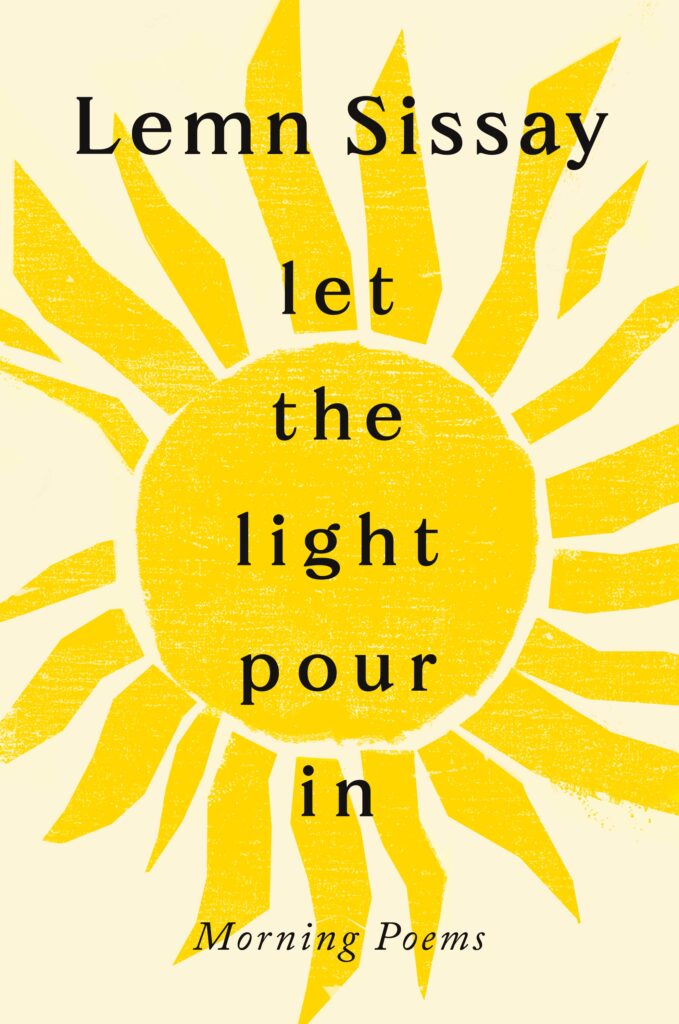How do you do it?’ Said night
How do you wake up and shine?’
I keep it simple’, said light
One day at a time.’
For the last thirteen years poet Lemn Sissay has started the day with a morning quatrain, four lines with a rhyme on the first and third and second and fourth lines.
A collection has now been published, with the title Let the Light Pour In.

Sissay, who will be appearing at the Edinburgh International Book Festival on August 11 says the collection of life affirming poetry is a welcome change of tone from his memoir, ‘My Name Is Why’, a beautifully written but heart-breaking account of his life growing up in foster homes and in care.
“I’ve been very lucky. If a person is fortunate enough to discover what they love then it gives them the most powerful tools to get through their life.”
Sissay shares his daily poetry practice with thousands of readers on social media – a habit that has introduced his work to a new, ever-changing audience.
“Poetry brings solace, it brings hope for people. It gives people the chance to talk about the world as they experience it, rather than how they are told they should experience it.”
Sissay, who was rejected by his foster family at the age of twelve, and who did not trace his birth parents until adulthood, found strength in his literary gifts – even as a young and frightened child.
“I was always a writer. I was a writer in spite of what happened to me.
“Poets become very rooted in time and place. It gave me a sense of stability. People often think poets are unstable – I think it is the opposite.”
Sissay, who began work as a window cleaner, made his name on the live poetry scene in Manchester in the 1980s. At the time poetry and comedy were often performed alongside each other and he grew up as a performer sharing a stage with people like Henry Normal, Caroline Aherne and Steve Coogan.
These days there is a whole new generation of poets making names for themselves on the internet. He mentions Scottish poet Lennie Penny, who gathered millions of followers sharing Scots words on the internet and Donna Ashworth, who came to prominence when she created poetry about the Covid lockdown and released it to raise money for the NHS.
“The internet is the great publisher in the sky – that is why it is a tool of revolution. We are able to share literature and art – and this is only the beginning. Publishing has changed forever in a profound way.”
Sissay has a habit when travelling of asking strangers to join him for a coffee – by putting out a call with his location on social media. “One of the good things about being a poet – and it’s the same for people like Michael Rosen – is that you get a lot of love from people – so people tend to be nice. I like having this window into the world.
“Writing poetry gives you a glass-bottomed view of life – I like that, I really do.”
After successfully taking the Government to court for his treatment as a child he was given the official record of the first 18 years of his life – which formed the basis for ‘My Name is Why’. You can still hear the anger in his voice when he talks about being an ‘experiment’ for adult social workers and foster families – and insists that these sorts of experiences are not as uncommon as you might think.
Comic Sophie Willan, who considers Sissay her ‘mentor’ had a similar story, when she created a Fringe show based on her social service records – and went on to use it as the basis of her TV series Alma’s Not Normal.
Sissay, for whom poetry is the stuff of life, is very keen to remind you that it doesn’t have to be a highbrow artform and in fact you can find poetry just about everywhere.
“Poetry is in lots of places, not just the refined environment of literary festivals. There will be poetry in comedy, there will be poetry in song and there will be poetry in theatre.
“So, you’ll find poetry across all the different festivals in Edinburgh.”






